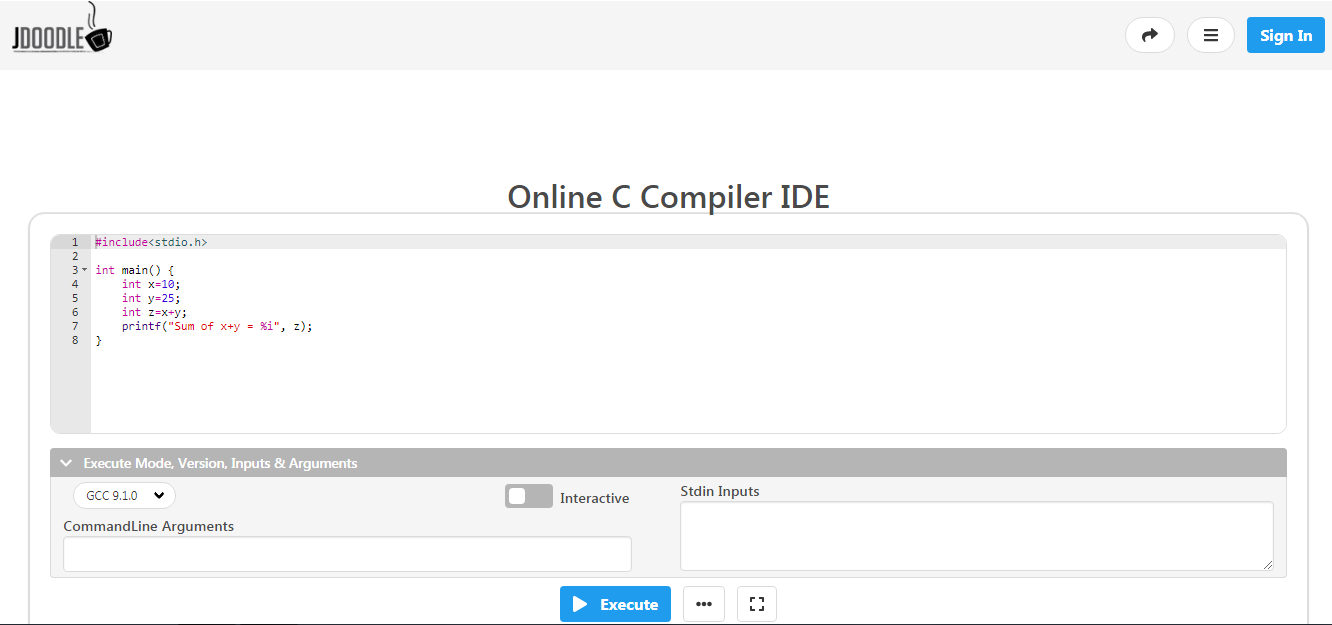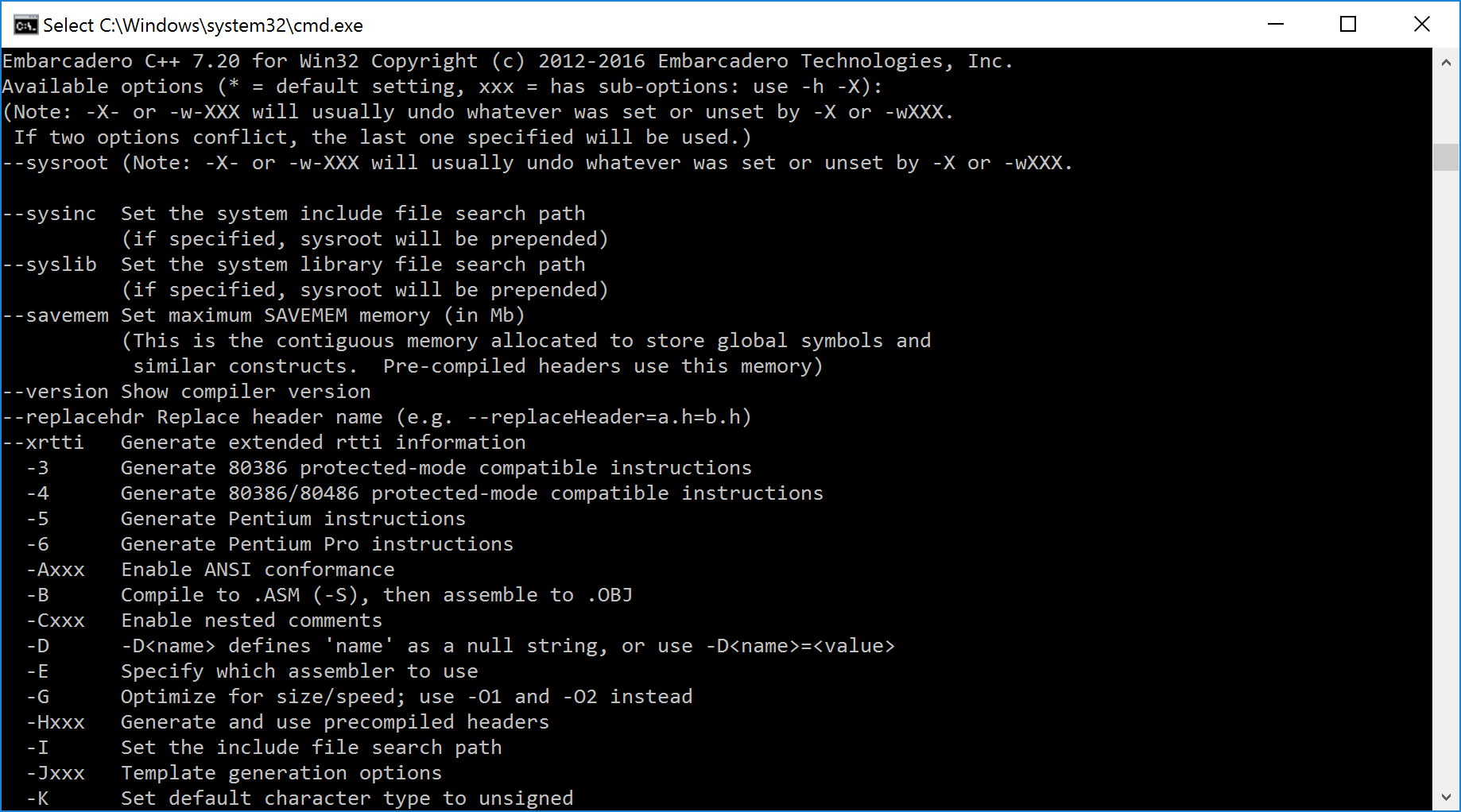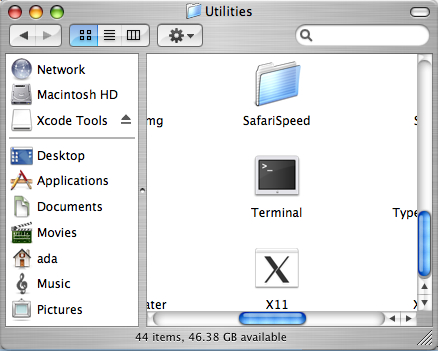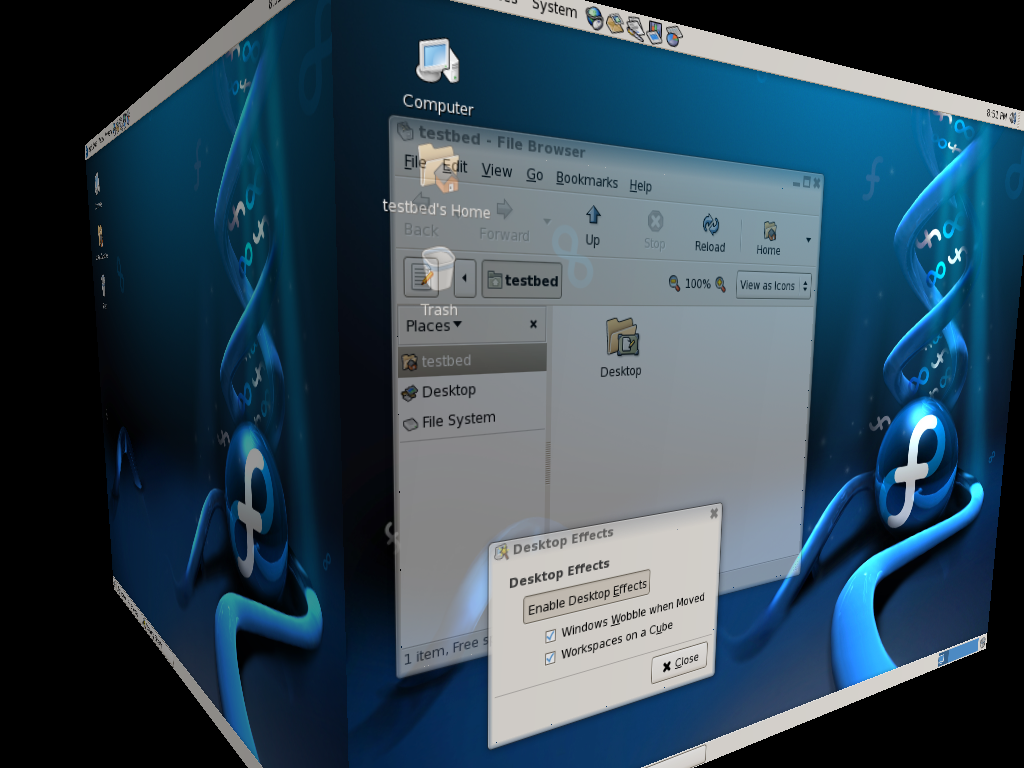- C Compiler For Mac Osx
- Download C Compiler For Mac
- Free C Compiler For Mac Os X Versions
- Free Download C Compiler For Mac Os X
- Free C Compiler For Mac Os X
Apple mac os x c compiler free download - Apple Mac OS X Mavericks, Apple Mac OS X Yosemite, Apple Mac OS X Snow Leopard, and many more programs. OS 10.6 and 10.5 have previously been used; 10.4 has never been tested. 10.3 and older are PPC-only. Compiling with support for older versions of Mac OS (This section is out of date or incorrect) By default compiling C code on OS 10.6+ will produce binaries that won't run on OS 10.4 and 10.5.
Apr 16, 2019 Brief Overview of Intel C Compiler Professional Edition for Mac OS X for Mac OS X. Intel C Compiler Professional Edition for Mac OS X is an impressive code compiler that relies on a very powerful optimization techniques that enables the programmers to increase the execution speed as well as improve the performance of the application. DosBox-based OS X wrapper of the Borland TurboC compiler, debugger, builder and integrated development environment for all Mac users What's new in TurboC 3.0 Build: New dosbox.conf: Now TurboC should be much faster under Dosbox. C# (pronounced 'c-sharp') is a great coding language that works across Mac and PC. Programmers use it to build a variety of software applications, especially in the Windows environment.
Aug 28, 2021 If you are using Mac OS X 10.6 - 10.10, check out the instructions for older versions of Mac OS X; An Apple App Store account; Internet access; Video instructions for Mac OS 10.11 (El Capitan) with Xcode 7. Rough video transcript: Hello, and welcome to this screencast on how to install the GNU C, C and Fortran compilers for Mac OS 10.11 (El. Both recent GCC (the code g/code program) & Clang (the code clang/code program) are good C11 (& C14) compilers for MacOSX, and both are free software. It is supported on Linux, Mac OS X, and Windows. For compiling the Java run-time environment needs to be functionally operational on the PC. Hi um im new to mac rumors but I was just wondering if anyone knows of a free C compiler for mac that is compatible with turbo C for windows. GCC, and Mac OS X. What are some good compiler for mac other than xcode. I used to compile and run online but want a compiler i can download and work with offline. More Less MacBook Pro 13', OS X 10.10. Looking for small C/C compiler available for OS X Catalina. C and C are different languages. Read and compare both n1570 (the C11 standard) and n3337 (the C11 standard). Writing scripts for fluid dynamics, not even in need for OOP, just wonder why compilers nowadays weight over USB-sticks capacities from 2000s:(.
Apple’s Xcode development system is superb for developing applications, but sometimes you just want to write C or C++ code for research or school. Composing a serious chunk of code with vi is no longer acceptable,* so users in this frame of mind are now using Eclipse, a modern IDE, that’s also free. Here’s how to get gcc without installing Apple’s Xcode and then install Eclipse for C/C++ programming.
What’s the Motivation?
At work recently, my wife was chatting with a colleague who was taking his first C++ class. She taught him how to use Eclipse on a Mac, even though he resisted at first. However, later, he came back and commented that the other students were trying to manage ever increasingly complex projects with the vi editor. It was taking them four, six, or even 20 hours in some cases to complete their homework each week. He finished his, typically, in 30 minutes. That’s the power of an IDE with a modern debugger. That last item, the debugger, can’t be emphasized enough. Print statements in your code are oh, so yesteryear with a tool like this. Time is money, and efficiency reflects on you as a programmer.
So if you’re a scientist, researcher or engineer who wants to write some research code, not intended as a GUI app, in Java, C, C++ or Fortran, you need to dump vi as an editor* (or Emacs or Nedit or whatever) immediately and get with this kind of IDE. Things are moving far too fast nowadays not to make this important move. (Clearly, I’m speaking to an older crowd here.**)
To be perfectly clear, Apple’s Xcode is a fabulous development system for C, C++, Objective-C and even Fortran 77***. You can build native OS X and iOS apps. But many researchers and scientists aren’t interested in Xcode. They’ve come from a Linux or other UNIX platform, like IBM’s AIX, and they just want to carry on their research in Eclipse on a Mac. This how-to is primarily for them. But, as I mentioned above, students who are taking their first programming class and own a Mac will also find this discussion useful — indeed mandatory. Remember, this is an introduction to whet your appetite and get you launched, not a complete Eclipse tutorial.
Also, this how-to for the sake of simplicity focuses on C/C++, but Eclipse can handle a myriad of languages, including, but not limited to, Java and Fortran. Let’s start with C/C++.
Getting the gcc Compiler
As an aside, when you install Apple’s Xcode (free from the Mac App Store only in Lion), gcc is automatically installed in /usr/bin. But if you have a mind to work with just Eclipse and gcc, you’ll need a way to install gcc without, if it pleases you, installing Apple’s Xcode first. (For reference, here’s a how-to on installing Xcode and gcc.)
There are at least two places I know of where you can get a gcc installer package for OS X:
- The OS X High Performance Computing page at Sourceforge managed by Dr. Gaurav Khanna at the University of Mass.
If you find other sources, let us know.
Installing Eclipse
Here’s a handy reference on where to get Eclipse for the Mac. Version 3.7 (“Indigo”) installs nicely in Lion and seems to work okay, but our household hasn’t put it to a grueling acid test with OS X 10.7.1.
Eclipse Download for CC++, 64-bit
The download is a …tar.gz file, so move it where you want the Eclipse directory to be because when you double click it, the package will be unzipped and untared right there. After Eclipse is installed, you’ll see it as an app, just like any other, with this icon.
It’s easy to create an alias to eclipse.app, if you wish, and place it in your /Application directory. Because the Eclipse IDE itself is written in Java, if you’re running a clean copy of Lion, you’ll need to download the Java runtime before the Eclipse app will launch. Just double-click on Eclipse, and it’ll trigger the required Java runtime download. Nothing else to do. If you’re in Snow Leopard, the Java runtime is already there.
Java runtime download
This first thing you’ll see when you run Eclipse is that it asks for the location of your workspace. I typically create a directory in /Users/john called Programming where I do any code development. (Which is not much these days.)
Workspace Selection
After you select your workspace, you’ll be confronted with an Eclipse peculiarity. A welcome page will be launched that brings a real feeling of WTF to many users. Here it is.
Welcome screen
The trick is to realize that the icon on the far right, circled in red above, takes you into the workbench. For that named workspace, this one time is the only time you’ll see that screen.
Once the IDE is launched, there are just a few details before you can build a project. Again, for simplicity, lets stay with C/C++. From the Eclipse File menu, select “New” and then C++ Project.
Eclipse - New Project
Experienced Eclipse users know the drill. Name the project, make sure you’ve identified the location of your compiler in the Toolchain, and so on. (It may be different than the default install by Apple’s Xcode. The screen shot below shows Apple’s install of gcc, marked as MacOSX GCC, because I’d previously installed Xcode on that Mac.)
Configuration
Newbies may want to select the Hello World project just to see how things get set up. Make sure you work your way through the setup with Next > at the bottom and don’t click the Finish button too soon. A more detailed examination of this set up and the ins-and-outs of Eclipse are beyond the scope of this getting started article. The goal here is simply an introduction for Mac users. And you’re not alone. There’s a huge body of knowledge on the Internet about Eclipse. Here’s a start.
If all went well, you’ll be in the Eclipse IDE with the Hello World program in the editor and a Make file already created. This environment is called the Eclipse workbench.
Eclipse Workbench w/ default “Hello World” code

It may take you some start-up time to learn Eclipse, but trust me, coding the old way will soon bog you down. The Xcode and Eclipse developers learn from each other, so if you ever decide to get into OS X or iOS development, having earned your wings in Eclipse will pay huge dividends later.
__________________
* I’m qualified to say this because I’ve lived and breathed vi for a living in the past.

** Remember, a lot of people are going back to school, learning or refreshing their programming skills.
*** You can write and compile Fortran 77 in Xcode with standard output, but you can’t access the Cocoa APIs and build native apps in F77.
Best C Compilers: For most beginners of programming choosing a user-friendly C or C++ compiler is challenging enough. The fact is many programming languages that have evolved through different OS environments are not enabled with the ability to bear current day computing parameters.
Best C Compilers
The programming languages C and C++ are the most crucial for every programmer to master since they are the base-point for many other and recent programming languages and still used in many ways today.
A list of best C, C++ compilers to work with Mac OS X, Linux, Windows 7/8/8.1 OS environment is given here –
Eclipse C Compiler
With Eclipse you get advance functionality for programming in C, C++ on an open-source platform. This IDE is really a simple to use IDE, perfect for anyone new to programming. It comes packed with impressive features including a debugger, auto-code completion, syntax highlighting etc.
C Compiler For Mac Osx
It is supported on Linux, Mac OS X, and Windows. For compiling the Java run-time environment needs to be functionally operational on the PC.
Code Blocks Compiler
This is a cross-platform extensible and open source IDE compatible for C++. The IDE can be extended with help of different, available PLUGINS. The IDE is fully configurable and can be downloaded through several ways.
Downloading the setup file for the binary release you can run it on the PC. Alternately download a nightly-build, source code or retrieve source-code from the SVN.
Digital Mars
It’s free and has both GUI and command-line versions. Digital Mars is convenient to use for its quick link time and efficient compile.
C-Free
Though small C-Free has brilliant features and can be considered as an alternative to the traditional Turbo-C compiler for developing C++, C programs and for supporting many other compilers as well.
The compiler comes in a 30-day free trial version but for using it long you have to buy it.
NetBeans
Advance and open-source NetBeans offers features like unit testing, semantic highlighting, code assistance and automatic formatting. With NetBeans, you can easily develop web, mobile and desktop applications in Java, HTML, CSS and JavaScript.
SkyIDE
This IDE is a multi-view, multi-project and multi compiler for C++ that supports multi-profile compiling in a number of languages including JavaScript, PHP, and Java. It supports Mac and Linux.

Functions include autocompleting, line tracking, text manipulation, and syntax coloring.

Dev C++
The Dev C++ is an IDE that supports C language and uses Gcc’s MinGW port as compiler. The IDE offers project manager, print support, auto-code completion and syntax highlight.
MinGW
Comprising of a group of tools for programming to cater to native windows apps MinGW has a GCC port like C, ADA, Fortan and C++ compilers.
CodeLite
Functional for Windows, Mac OS, and Linux OS Codelite is an open source and cross-platform IDE compatible for C++ and C.
This is not a free IDE but the fact that it’s quite a powerful and intuitive editor for source code manipulations works to its favor.
Also Read:
U ++
With a set of different libraries like SQL, GUI, Ultimate++ works well with MinGW, Visual C++, and GCC and is used by C++ programmers for good productivity output. It is cross-platform and a RAD IDE.
So those were some of the best C Compilers for Mac and Linux PCs.
This post was last modified on October 16, 2019 9:19 AM
Download C Compiler For Mac
C++ Compiler For Mac Osx
Question or issue on macOS:
Is there a small, free C or C++ compiler for OS X, like TCC?
Xcode is not small, or simple like TCC, AFAIK.
I’m looking for something like a GCC binary file or TCC for OS X.

How to solve this problem?
Solution no. 1:
gcc is the most widely used one (and Apple provides official builds of it as part of XCode). XCode is also usually distributed on your OS X cd’s, though that version may be a little out of date now, depending on what version of OS X you have.
Look into Fink or one of the similar projects out there if you want a build of gcc that’s not linked to Xcode. That said though, Xcode is a great IDE for OS X.
Solution no. 2:
You could use the Xcode Tools that are already included in OSX.
Xcode is the same professional
developer toolset used by Apple to
create Mac OS X, as well as many great
Apple applications, and Xcode is
included with every copy of Mac OS X.
Solution no. 3:
Free C Compiler For Mac Os X Versions
You can use Code::Blocks IDE its simple slick and hav good set of feture, a plus opensurce and ready to dl for 3 major plateforms
still recoment using Xcode if u just have to make projects for MAC, but if u are going to port it to linux and windows, then my choice is Code::Blocks [Give it a try atleast]
Solution no. 4:
I know you want a small compiler, but it is best to just download and install Xcode. It is a great IDE. From there, you don’t have to use it if you don’t want to. Once it is installed, you can use something like this in terminal:
And that would build a source file called myFile.c which contains C code and the output module (executable) would be myFile. You’d execute it by running:
Update: What is your reason for not wanting Xcode? Furthermore, is GCC itself ok (disregarding Xcode for a moment)? It’s important to know that GCC is not a part of Xcode. Apple made use of GCC, which is an open source C/C++ (and more) compiler.
Free Download C Compiler For Mac Os X
I just can’t find binaries of GCC for mac so downloading Xcode is an easy way to get some…
Update 2: It also just came to my attention that NetBeans will compile C / C++ Code. It also uses the GCC compiler. I’m not sure if it using GCC from my Xcode installation but I thought I’d mention this.
Best Regards,
Frank
Solution no. 5:
There are binary packages for LLVM, both for the Clang and GCC front-ends.
Solution no. 6:
PCC, the Portable C Compiler, is available for the Mac. It is small and free. Its tarball weighs in at total of 1778 KB from its 4th of July CVS Snapshot.
Free C Compiler For Mac Os X
Solution no. 7:
If you don’t want to use Xcode install the macports from macports.org and if you like a graphical user interface install porticus as a managment gui for all the installed ports. In Porticus you can now easily install all different versions of gcc without Xcode.
Porticus will compile the packages for your mac and install all the needed dependencies like a Linux packet manager.